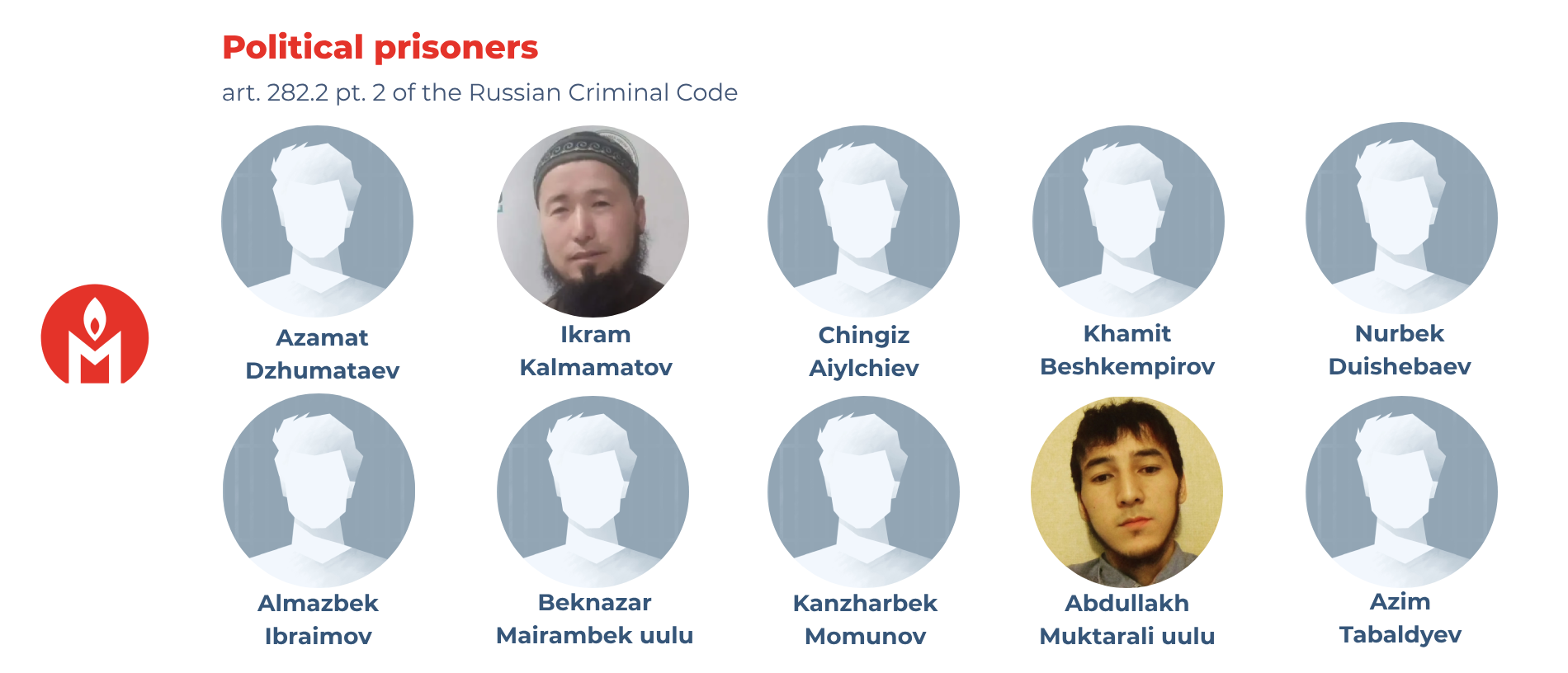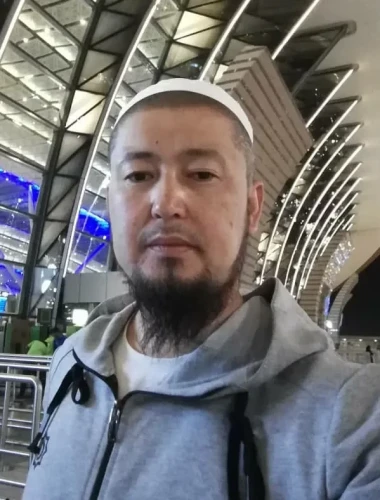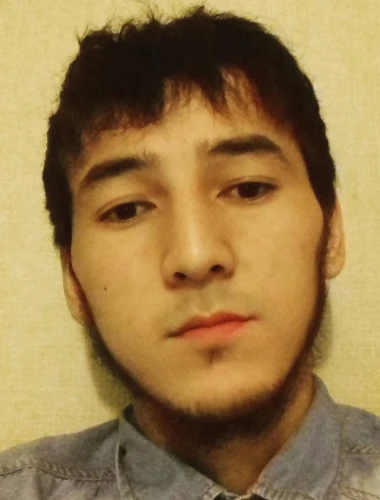Ten individuals convicted for participation in Tablighi Jamaat are political prisoners
Ten Kyrgyzstan nationals living in Moscow have been convicted for participating in the activities of a peaceful religious movement
The ‘Political Prisoners. Memorial’ human rights project, in accordance with international standards, considers Azamat Dzhumataev, Ikram Kalmamatov, Chingiz Aiylchiev, Khamit Beshkempirov, Nurbek Duishebaev, Almazbek Ibraimov, Beknazar Mairambek uulu, Kanzharbek Momunov, Abdullakh Muktarali uulu, and Azim Tabaldyev to be political prisoners. The ten men were convicted on criminal charges of ‘involvement in an extremist organisation’ for participation in Tablighi Jamaat, a peaceful Islamic religious movement. Their prosecution and conviction violated their rights to a fair trial, freedom of religion and freedom of association. We demand their immediate release and that all criminal charges against them be dropped.

What were the charges against the 10 participants in Tablighi Jamaat?
In July 2023, FSB officers detained 10 Kyrgyzstan nationals on suspicion of involvement in the religious organisation Tablighi Jamaat [‘Society of Preachers’], which is designated extremist and banned in Russia. The investigative authorities alleged that Azamat Dzhumataev and Ikram Kalmamatov organised a cell of the movement in Moscow and Moscow Oblast, and involved Chingiz Aiylchiev, Khamit Beshkempirov, Nurbek Duishebaev, Almazbek Ibraimov, Beknazar Mairambek uulu, Kanzharbek Momunov, Abdullakh Mukhtarali uulu, and Azim Tabaldyev in its activities. Searches were carried out at the suspects’ homes, during which, according to the FSB, religious literature was found.
On 12 and 13 July 2023, the detainees were remanded in custody. On 18 December 2024, Dzumataev and Kalmamatov were convicted on a charge of organising the activities of an extremist organisation (Article 282.2, Part 1, of the Russian Criminal Code). The others were convicted on a charge of participating in such activities (Article 282.2, Part 2). Beknazar Mairambek uulu had been convicted on the latter charge earlier, on 19 June 2024. The lengths of their sentences are not known.
Why do we consider the participants in Tablighi Jamaat to be political prisoners?
We do not know whether the defendants in this case were indeed adherents of the religious organisation Tablighi Jamaat. However, if they were, we nonetheless consider their prosecution unlawful and without grounds.
The Russian Supreme Court banned Tablighi Jamaat in 2009 in a closed hearing, basing its decision on unproven claims of the organisation’s involvement in extremism and terrorism. Neither the Supreme Court ruling nor the materials of the criminal prosecutions of the ten men contain any evidence of acts of violence, threats, or calls to engage in violence. The defendants were prosecuted and convicted solely for participating in religious rituals, expressing opinions on religious matters and distributing religious literature.
Tablighi Jamaat is an international Islamic movement that operates legally in democratic countries. In our view, its designation as extremist is unlawful. The Supreme Court ruled that statements in the group’s literature about the exclusive nature and superiority of the religion were extremist, but such claims are made by representatives of nearly all religious groups.
Russian security services have previously used accusations of affiliation with Tablighi Jamaat to artificially boost their statistics for tackling extremism and to intimidate Muslim communities outside their control. In the cases in question, there is no evidence of any criminal offence. The defendants were deprived of their liberty in violation of their rights to freedom of conscience, religion, and association, which are guaranteed by the Russian Constitution and international law.
A detailed description of the case and of our position is available on our website.
Recognition of an individual as a political prisoner does not imply the ‘Political Prisoners. Memorial’ human rights project agrees with, or approves, their views, statements, or actions.
How can you help?
You can donate to help all political prisoners in Russia.


